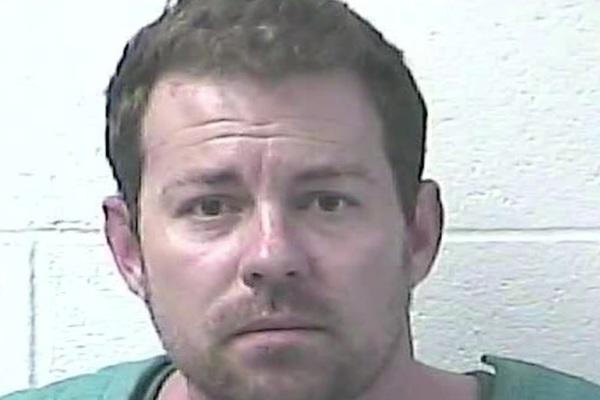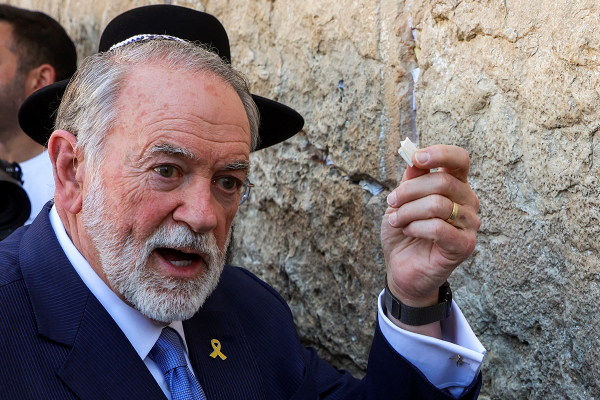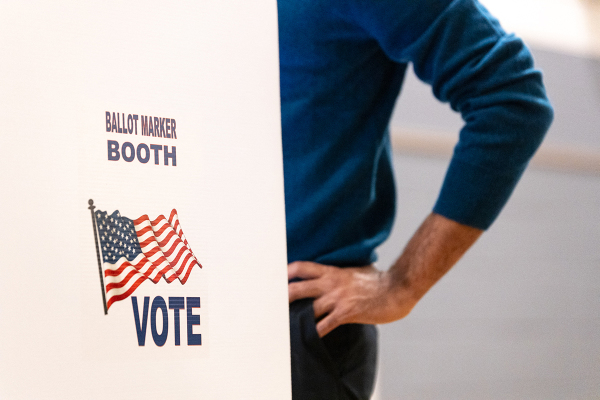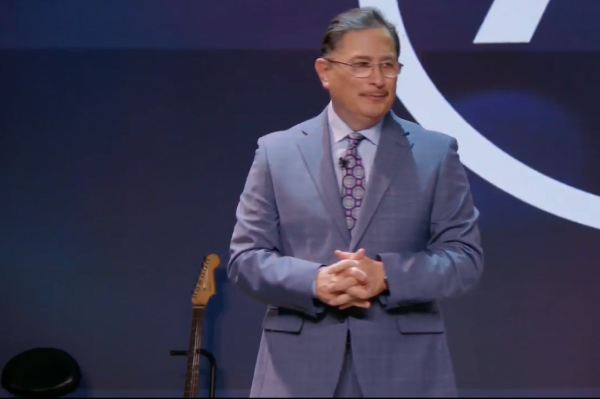CP’s uncomfortable conversation with a black man: 'It’s not exclusively a sin issue'
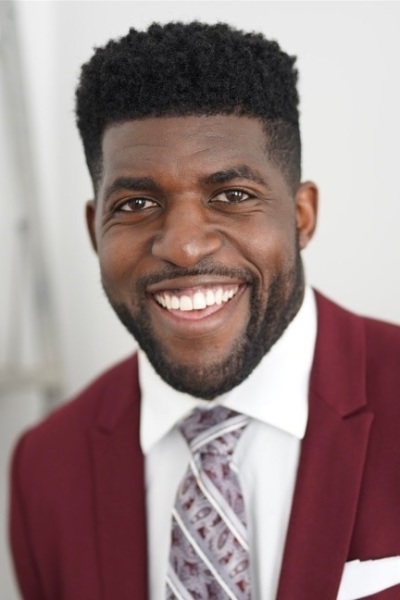
Former NFL linebacker Emmanuel Acho, who's now a Fox analyst, released a new book inspired by his popular series, called "Uncomfortable Conversations With a Black Man,” to help facilitate racial reconciliation. He says the Church can do a better job at breaking the racial divide as well.
“This is my Esther moment, for such a time as this,” Acho told The Christian Post in an interview about how the Lord has been using him to bring blacks and whites together for dialogue.
The 29-year-old athlete has gone viral this year with his internet series, “Uncomfortable Conversations With a Black Man,” which was launched on the heels of the national unrest in America that followed the death of George Floyd.
Acho’s “uncomfortable” conversations on YouTube have included Academy Award-winning actor Matthew McConaughey and “Fixer Upper” stars Chip and Joanna Gaines. He also sat down with interracial couples — gold medalists Lindsey Vonn and her husband, P.K. Subban, and “The Bachelorette’s” Rachel Lindsay and her spouse, Bryan Abasalo — as well as a unit of police officers and NFL commissioner Roger Goodell, to name a few.
“Let's not be distracted,” the Texas native of Nigerian descent told CP. “Let's keep our focus on truly making change and being a part of the reconciliation.”
Acho teamed up with media mogul Oprah Winfrey to publish his new book, Uncomfortable Conversations with a Black Man, which is now available. Winfrey said she partnered with Acho because of how much his new series has impacted her.
In the book, Acho creates an honest dialogue for anyone seeking answers on how to really mend the racial divide in the world today.
The following is an edited transcript of CP’s conversation with Acho where he speaks directly to people of faith on how to tackle this sensitive topic head-on. Though it may be uncomfortable, he says it’s necessary to not dub it as simply “a sin issue” while ignoring the "real issue."
Christian Post: You are a man of faith. Do you consider having these uncomfortable conversations with white people a service unto God or call from Him?
Acho: I do. But I consider everything that I do and try to do for a purpose, as ministry, as I'm using my platform. I've told Oprah, this is my Esther moment, for such a time as this because I believe God ushered me into this moment for such a time as this. It was kind of one of those "Here I am, send me" type of moments. I didn't seek this moment out. I wasn't asking for this moment. But the man met the moment and I'm always like, "God, why did you choose me?" But I think that everything I went through in my life was for this specific point in time.
Playing in the NFL wasn't to make money. I think it was to integrate myself into a culture that I would never be integrated in. With going to a predominantly affluent white college preparatory school, it wasn't to get a great education, it was to immerse myself in a culture that I otherwise wouldn't be immersed in. So that is how I see this. I think God ordained all of this, to use me for this moment.
CP: In your interview with Carl Lentz, he shared that he believed the Church propagates racism. As a black person, is that something that’s a thought in the back of your mind when you attend church?
Acho: I would submit this: I would submit that the Church doesn't do a good enough job to break racial divides. Let me submit this: there's a difference between diversity and inclusion. Diversity — being invited to the dance. Inclusion — being asked to dance. I think the church attempts diversity, "All our doors are welcome. We're a multicultural church or a multiethnic church, we're a nondenominational where everyone is welcome because God loves everyone." But what are you doing within your congregation to promote inclusion? Because black culture is different than white culture and the black church experience is different than the white church experience. I know because I go to both.
When I was in college, I would literally go to white church at 7 a.m., then go to black church at 11 a.m. I say black versus white church because as much as my dear brothers and sisters, black and white, want to act as though we have diverse churches, we're missing the mark still in that regard. So I wouldn't say that I don't feel safe or welcomed. I would just say I feel uncomfortable.
CP: What are you really hoping happens with your book, Uncomfortable Conversations With a Black Man?
Acho: I think in Uncomfortable Conversations With a Black Man, it'll do two things. One, it will expose you of your ignorance and it will educate you on what you didn't even know. When you start having dialogues, you start to expose things that you didn't even realize were misconceptions. A dear pastor, a friend who I have met several times, a friend who I enjoy his work, he came out during a conversation about racism and talked about slavery and said it was a "white blessing." See, until you start having these dialogues, you don't even realize that that's in your head or in your heart. So while so many people criticized him for that, and I could understand the criticism, I'm [clapping] because if you don't have the conversation, then you live your whole life with that misconception.
So I'm hoping that my book will essentially allow so many of my white brothers and sisters who are great intended white brothers and sisters to now have direction because intention without direction is void and meaningless. So many white people, specifically in the Church, my white brothers and sisters [have] incredible intentions, God-fearing, they love the Lord, Praise Jesus, all that but they just don't have the right direction and I try to provide some direction as well.
CP: Why do you think the phrase Black Lives Matter triggers some to say "marxism" more than agreeing with the statement?
Acho: I try to avoid triggers. Here's what I mean, I separate Black Lives Matter the noun from Black Lives Matter the adjective, Black Lives Matter the noun meaning the organization. I don't ever talk about the organization; please do what you will with your organization, research it, find out if you support it or if you don't, but let's talk about the adjective black people and their lives mattering because there's nothing that can be triggering around that. I don't get into all the nuances of politics because people get distracted by politics. I'm just here to talk about life. Life isn't necessarily politics. My life mattering, your life mattering — that's not political. That's just humane. So that's my plan of action. When I discuss those. Let's not be distracted. Let's keep our focus on truly making change and being a part of the reconciliation.
CP: Is it exhausting having to explain the inequalities and try and bridge the gap while you too are grieving because of the injustice?
Acho: I would say it is a worthy burden. Is it exhausting? I definitely don't have energy. But I would say that it is a worthy burden. Some burdens are worthy, some are not. This burden is worthy.
In team sports, sometimes you have to carry your teammate while they're down, and they'll carry you at one point in time. Right now, I just consider the fact that I'm just doing a lot right now but it's for the betterment of our society so I don't really have time to worry about my exhaustion. I'm trying to breed reconciliation.
CP: What advice do you have for your black brothers and sisters or people of color during this season?
Acho: Well, I would say two things. Number one, it's not your responsibility to educate your white brothers and sisters. It's not. But I would also submit this: I think it behooves us to educate those who are willing to listen. It's not your responsibility to and I'm not going to put an increased weight on black people who are dealing with so much right now. But I do believe that it is in our best interest that if somebody is willing to listen, then I'm not going to be the reason that they don't hear. That's how I take it out. Black people, we're not one monolithic group who all think the same way. But my train of thought is very simple: If they're willing to listen, I'm not going to be the reason they don't hear.
CP: You end the book with how to end racism. Do you think that's possible? There are people of faith who say this is a heart issue and a sin issue that will always be present.
Acho: Let me speak to that. I love my white brothers and sisters but we can't sit here and say that "it's not about race, it's about grace; it's not about skin, it's about sin." It is about sin but it's also about skin. It is about grace but it's also about race because sin is playing itself out in the skin issue. I would also submit this: There are degrees of murder in America. First-degree murder is premeditated, second-degree murder is a crime of passion. Then you move down to involuntary manslaughter. It's not intentional, but it's still unlawful. It's not intentional but it still led to a death.
So many of my white brothers and sisters, specifically my Christian white brothers and sisters, they're not committing first-degree racism. They're not shooting black people. They're not committing second-degree racism. They're not putting a knee in a black person's neck. But they do fall under that rung of involuntary manslaughter. They are killing emotionally their black brothers and sisters and they're even unaware of it.
It's not a matter of sin because he who knows what is right and doesn't do it, this is sin. So the question then becomes, do my white brothers and sisters know what is right? When the pastor uttered that slavery was a white blessing, to me that's not a sin issue because he didn't know what was wrong. To not know something is wrong and not do something is not an issue. To me, knowing something is wrong and not doing anything about it now becomes an issue. So I am trying to, with my book, allow my white brothers and sisters to know what is right because he who knows what is right and doesn't do it, this is sin.
I'll end with an analogy. If I'm walking in a door and I don't see you behind me and I don't hold the door, I'm not at fault. I didn't see you behind me. See, but if I'm walking in that same door and I turn and I peek and I now see you behind me, but I still try to scurry in that door and let it shut right after me without holding it open for you, now that's a different issue because now that's a hard issue.
So in closing, I would conclude and I would submit to my white brothers and sisters: Let's not use that it is a sin issue as a masquerade for the real issue. Let's understand the real issue. It's not currently exclusively a sin issue right now. Let's understand the real issue. And then let's address both issues as we can.
Watch the interview in its entirety below.










